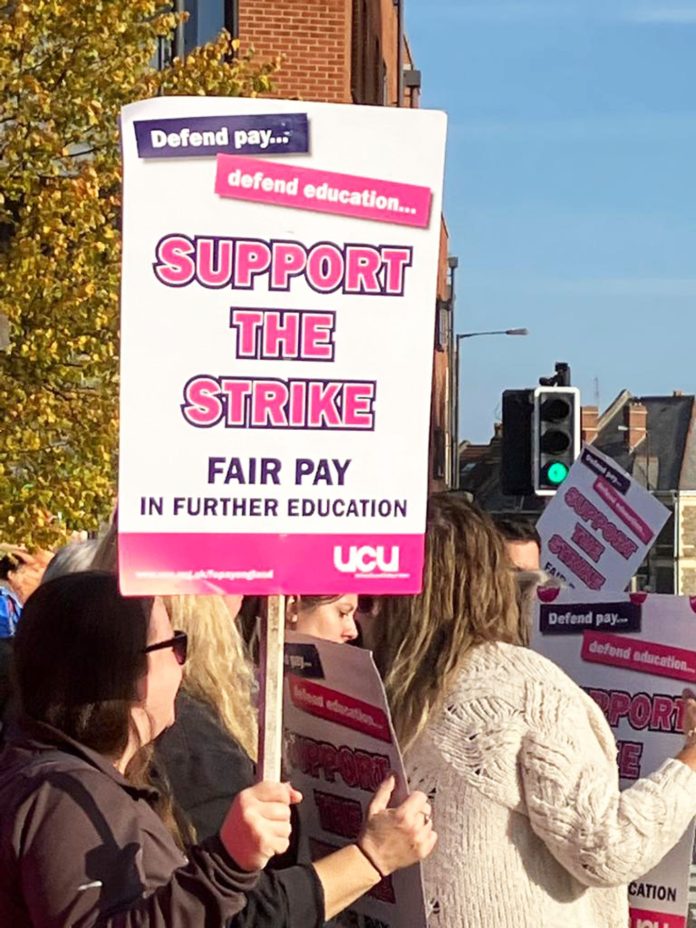Duncan Moore, Plymouth Socialist Party and UCU member (personal capacity)
Further Education (FE) college staff in the University and College Union (UCU) will vote in a consultative e-ballot, opening on 3 March, about possible national industrial action on pay and workload.
Since 2009, pay for college staff has fallen by 35%, because of year-on-year below-inflation deals. The starting pay for a qualified FE lecturer is less than £26,000. For tutors and assessors it is often far less, with two-thirds heating their homes less frequently and a quarter skipping meals.
Due to rising workloads, college staff now effectively work an average of two days unpaid each week, according to a UCU report.
College staff have already struck at 29 FE colleges in England last autumn, after the employers’ body, the Association of Colleges (AoC), recommended a pay award of 2.5%. That action was disaggregated. The proposed action members are now being consulted on would be the first ever aggregated ballot of FE staff.
A college lecturer at City College Plymouth, where UCU members struck for ten days in September and October, spoke to the Socialist.
“We were driven to strike because of the poor wages, but more than that, the unsustainable workload. You can’t get all the things done you’re asked to do without working more hours than you’re paid for.
“The experience of striking alongside my colleagues was brilliant. We supported each other, and had a chance to talk to the students about why we were striking, and they were very sympathetic. We didn’t get everything we wanted but we achieved a big percentage pay rise for lower-paid workers. It was definitely worth it.
FE workers should definitely vote “yes”. Lots of people on my picket line had never been on strike before, they were a bit frightened, but enough is enough.”
National strike action by FE workers must be coordinated with other unions. It must push for a consolidated pay offer at least in line with inflation, to begin to address the real-terms pay cuts of the last ten years, to deal with the recruitment and retention crisis and impossible workloads.
The UCU leadership must pursue a strategy to win, agreed by members’ representatives on the union’s Further Education Committee.







